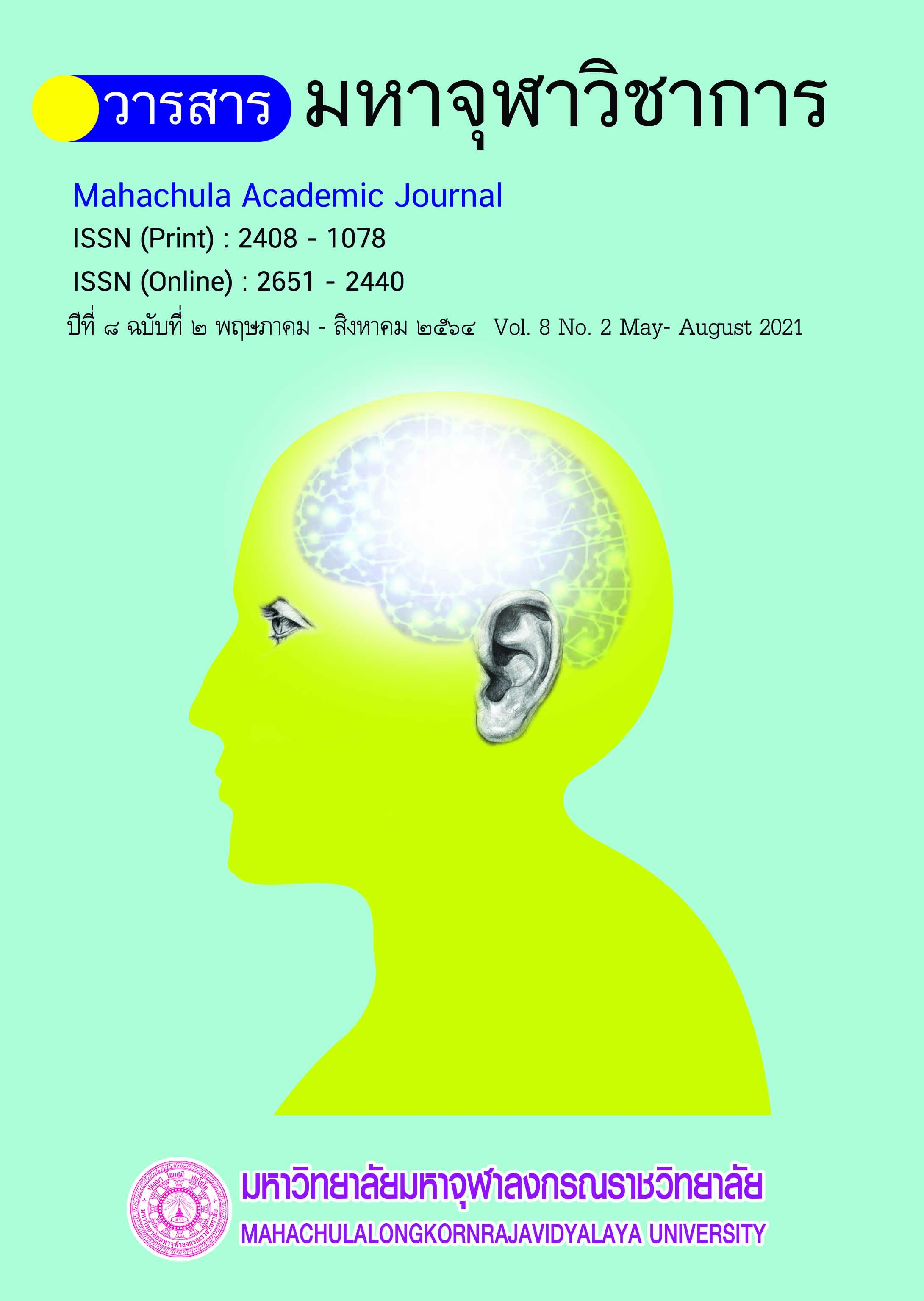The Development of Reading Comprehension from Using Context Clues on Facebook of High School Students in Bangkok
Main Article Content
Abstract
The purposes of this quasi-experimental study were: (1) to study high school students’ reading comprehension using context clues on Facebook before and after the experiment, (2) to compare high school students’ reading comprehension using context clues on Facebook and traditional teaching method before and after the experiment, (3) to analyze high school students’ reading comprehension using context clues on Facebook, in academic year 2020. The key informants were 34 students, which were divided by purposive sampling method into two groups: control group used the traditional teaching method with context clues consisting of 17 students and the experimental group used context clues on Facebook consisting of 17 students. The research instruments were used for data collection: students’attitude questionnaires, reading comprehension (pretest and posttest). The data were analyzed by means, standard deviation and t-test.
The results showed that : -
- The average score after the treatment was 13.17 ( =13.17), S.D. = .97). 12.23 ( =12.23), S.D. = 1.55). The average difference of the scores before and after the treatment was 5.24 and 3.29 and the t-test statistic value was 7.56 and 11.4
- The differences in post-test was higher significant difference at 0.05 levels.
3. High school students’ reading comprehension using context clues on Facebook at a high level with the arithmetic mean ( =4.27), (S.D. = 0.20).
Article Details
References
B. F. Skinner. Verbal Behavior. Harvard University: Harvard University Press, 1948.
Dukper B. Kojo, Baffour O. Agyekum and Beatrice Arthur. “Exploring the Effects of Social Media on the Reading Culture of Students in Tamale Technical University”. Journal of Education and Practice. Vol. 9 No. 7 (2018) : 1-10.
Kenning, M. ICT and Language Learning: From Print to the Mobile Phone. New York: Palgrave MacMillan Press, America, 2007.
Luan Saiyod and Angkhana Saiyod, Luan Saiyod and Angkhana Saiyod. Research Methodology in Behavioral Science. Chulalongkorn University: Bangkok, Thailand, 2000.
Nilgün Tosun. “Social Networks as Learning and Teaching Environment and Security in Social Networks”. Journal of Education and Training Studies. Vol. 6, No. 11, (2018) : 195-196.
Nouf Rashdan Almutairi, “Effective Reading Strategies for Increasing the Reading easing the Reading Comprehension Level of Third-Grade Students with Learning Students with Learning Disabilities”, A Dissertation of Doctor of Philosophy in English, Western Michigan University, 2018.
Nara Buranarat, Nara Buranarat. Statisitc for Research 1. (Songkhla : Supakarn Printing & Service, Songkhla, 2000.
Piyada Low and Rinda Warawudhi. “Undergraduates' Attitudes toward the Use of Facebook in Fundamental English Course”. International Journal of Information and Education Technology. Vol. 6, No. 12, (December 2016) : 394.
The Ministry of Education. The Basic Education Core Curriculum B.E. 2551 (A.D. 2008). Learning Area of Foreign Languages: Bangkok, Thailand, 2008.
EF Blog. EF English Proficiency Index, [Online]. Available : https://www.ef.co.th/epi/regions/asia/thailand/ [21 November 2020].


